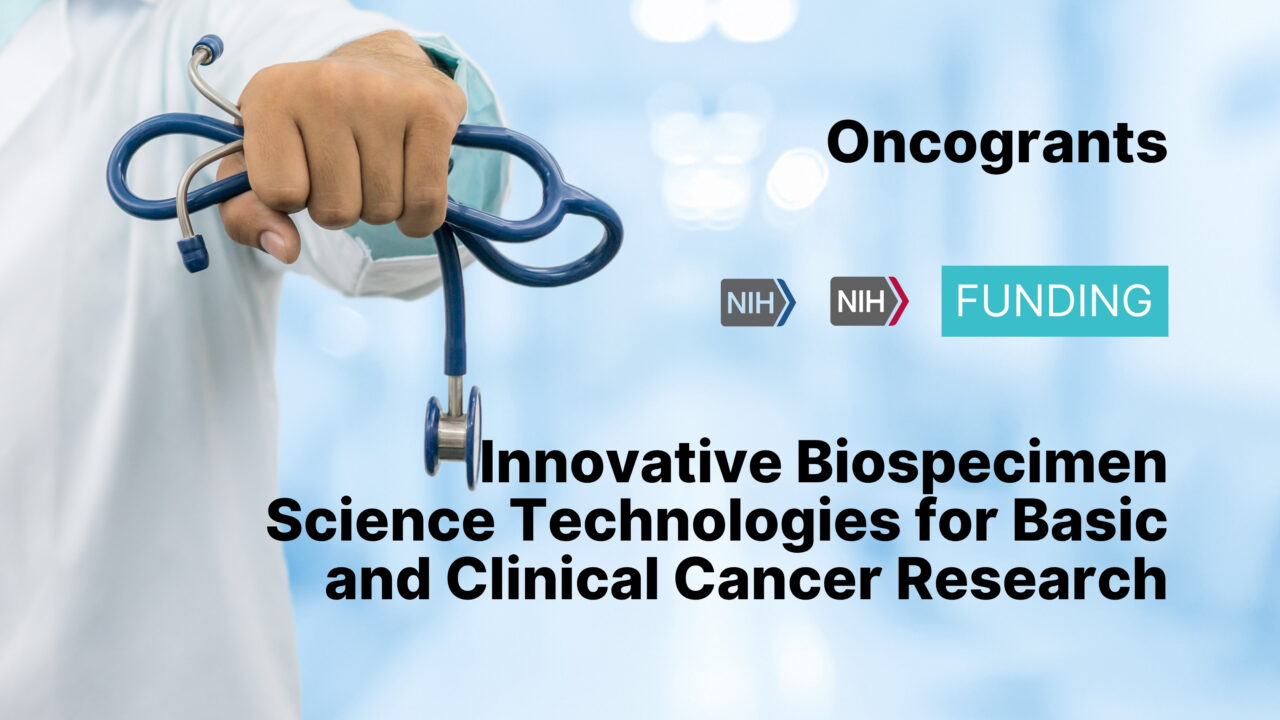Supports Phase I (R61) exploratory/developmental projects to create highly innovative tools, devices, instrumentation, assays, and associated methods that improve the collection, handling, processing, preservation, and/or storage of cancer-relevant biospecimens and their derivatives. Applications must propose novel capabilities to preserve sample integrity, establish rigorous quality assessment/quality control metrics, or mitigate pre-analytical degradation of targeted analytes. These technologies should accelerate and enhance research in cancer biology, early detection and screening, clinical diagnosis, treatment, epidemiology, and/or health-disparities research. Projects that merely apply existing technologies without significant technical innovation will be deemed nonresponsive.
Eligibility Criteria
-
Eligible organizations:
-
U.S. and foreign institutions of higher education;
-
Nonprofit organizations (with or without 501(c)(3) status);
-
For-profit entities (including small businesses);
-
Local, state, and tribal governments;
-
Faith-based or community organizations;
-
Public housing authorities/Indian housing authorities;
-
Independent school districts;
-
Regional organizations.
-
-
PD/PI requirements: Must have an eRA Commons account.
-
Project scope: Early-stage (inception through preliminary development) biospecimen science technology development (no clinical trials).
-
Preliminary data: Not required but accepted. If feasibility is already established, consider the R33 companion (RFA-CA-25-004).
-
Nonresponsive applications:
-
Biological/clinical hypothesis–driven projects without novel technical innovation;
-
Proof-of-concept technologies ready for validation;
-
Whole-body or in vivo imaging instrumentation;
-
Clinical trials or toxicology beyond technology validation;
-
Biomarker discovery/validation;
-
Drug or therapy development;
-
Software/informatics-only solutions without integration into a device or method;
-
Lacks well-defined, quantitative performance measures.
-
Funding Details
-
Mechanism: R61 Phase I Exploratory/Developmental Grant
-
Direct costs: Up to 150,000 USD per year
-
Project period: Up to 3 years
-
Estimated awards (FY 2026): ~4, totaling 1,000,000 USD
-
Clinical trials: Not allowed
-
Budget constraints: Funds must be used for early-stage development and feasibility testing; pre-award costs allowed only as described in NIH Grants Policy Statement.
Key Deadlines
-
Letter of Intent: 30 days prior to application due date
-
Application Due Dates & Review Timelines:
-
October 3, 2025 (Submit by 5:00 PM local time) → Scientific Merit Review: February 2026 → Advisory Council: May 2026 → Earliest Start: July 2026
-
-
Expiration Date: October 4, 2025
Agency Contacts
-
Scientific/Research: Kelly Crotty, Ph.D. (kelly.crotty@nih.gov; 240-255-0917)
-
Peer Review: Referral Officer, NCI (ncirefof@dea.nci.nih.gov; 240-276-6390)
-
Grants Management: Sean Hine (hines@mail.nih.gov; 240-276-6291)
-
GrantsInfo: GrantsInfo@nih.gov; 301-480-7075
-
Grants.gov Support: support@grants.gov; 800-518-4726


